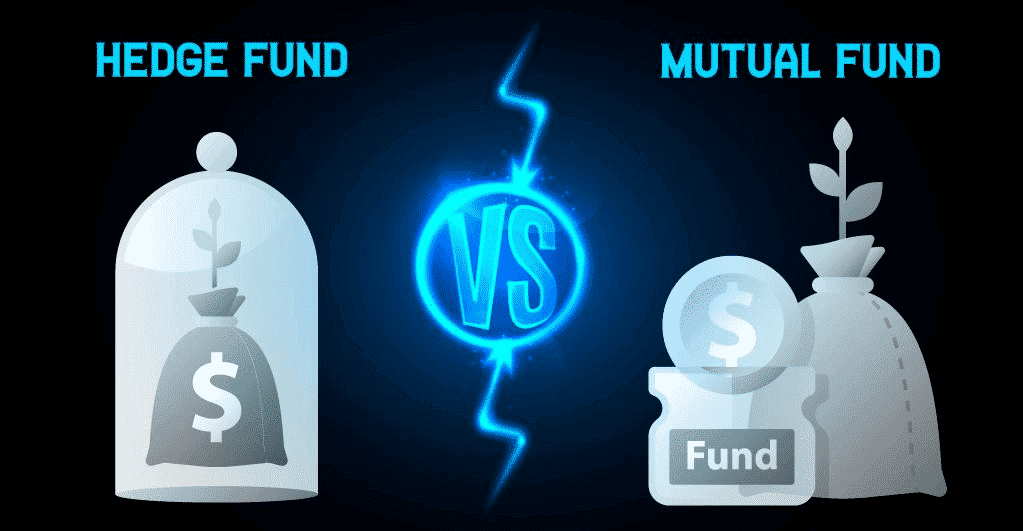In the finance world, hedge funds are often sought-after when investors lose complacency. Under the management of large investment firms, hedge funds account for billions of dollars of investments around the world. Different people invest in hedge funds for different purposes. For one thing, a hedge fund enables the diversification of the investment portfolio. Investing in hedge funds is more worthwhile than traditional investment funds. Due to their risk-mitigating benefits, they are a part of different investment strategies.
What Is a Hedge Fund?
For an investor, a hedge is a market position that provides a consideration from potential losses or gains incurred by another investment in a balancing effect. A hedge fund is defined as a pooled investment fund. It trades in relatively liquid assets by extensively using risk management techniques and complex trading methods. Hedge fund investing is meant for portfolio-construction. Hedge fund investors aim to improve the performance of their portfolio through leverage, short selling, derivatives, and other investment strategies.

In simple terms, a hedge fund is an alternative designed to protect your investments from market uncertainty. Regardless of how the market moves, an investor can generate positive returns through hedge funds. Hedge funds make the up and down markets favorable for their investments. With the help of expert hedge fund managers, an investor can attempt various ways of maximizing profits and simultaneously minimizing risks on investments.
Key Things to Consider Before Investing in a Hedge Fund
Hedge funds generate great returns in both falling and rising bond and equity markets. For new investors, they provide a reliable user experience. Investing in a hedge fund also allows new investors to balance their portfolios and reduce their risk and volatility. As investment vehicles, hedge funds are among the most reliable fund assets. Securities and exchange commissions around the world are witness to how these funds increase the net worth of accredited investors and beginners.
Before investing in hedge funds, you must consider the following criteria:
- Hedge funds utilize different strategies for different assets. Hedge fund managers can construct such strategies based on an array of asset classes.
- Several hedge funds may provide low correlations to traditional asset classes. Most of them claim to offer a unique diversifying solution to your traditional portfolio. But, in reality, you should select a hedge fund that shows a high consistency in returns from the broad market.
- To gain equity exposure, you should ensure that your potential hedge fund investment is not a very expensive drag.
- Before investing, you need an answer to “how much do you need to invest in hedge funds?” Justified hedging fees can help you determine this answer. Most hedge funds charge higher fees for their products and services.
- A typical fee charged by these investment firms ranges from 2% to 20%
- For-profits above a high watermark, hedge fund managers charge a steep performance fee.
- To beat passive index funds, a hedge fund manager can charge an additional performance fee.
- Every investment strategy has an analytical advantage. The success of the strategy can be derived from its degree of consistency in providing good returns with a high-risk tolerance.
- Money matters the most while choosing the right investment firm for hedging. The answer to “how much money do you need to invest in a hedge fund?” will let you know the potential return on your investment.
- Most hedge funds require investors to sacrifice the liquidity of their assets. To execute a unique strategy, these firms limit the investors’ ability to withdraw money at their discretion.
- Unlike a mutual fund, real estate, and ETFs, hedge fund investing does not provide daily liquidity.
- You are unable to convert investments quickly into cash.
- This restrictive liquidity is something that investors should seriously consider before investing.
These factors, when considered, can lead you to a reliable hedge fund manager and help you succeed as an accredited investor.
How to Invest in Hedge Funds – Step by Step

The process of how to invest in a hedge fund is simple. Here are the key steps involved in this process.
- Most hedge funds are only accessible to sophisticated investors. Hence, you should team up with your fellow investors to gain access to these firms.
- Every hedging firm will ask for your investment requirements, portfolio allocation positions, and investment needs. You should be ready to discuss the information on these grounds.
- Most of these firms are not regulated, which is why you may access them through a broker-dealer. They can help you leverage your positions in diverse market conditions.
- Since these institutions only accept accredited investors with high net worth, you should have an adequate understanding of bonds, hedging rules, and the associated risks.
- As an ordinary investor, you can buy stocks of a financial company that operates hedge funds. This can provide you indirect access to hedge fund investments.
Follow these steps and get access to the majority of these firms. Most of these hedging institutions have public links and partners in U.S. equities. Hence, they can provide a great leeway in price offers and diversity goals.
What are the Best Alternatives to Hedge Funds?
A mutual fund is a type of financial vehicle made up of a pool of money collected from many investors to invest in securities like stocks, bonds, money market instruments, and other assets.
Mutual funds and private equities are the best alternatives to hedge funds. They work on a similar Marketwatch and have many ways of securing the return on your investment.
#1 Mutual fund
Every investment advisor has to explain the “hedge fund vs mutual fund” comparison to its clients. Well, a mutual fund is a simple financial vehicle that pools money from several investors and invests it collectively in securities such as stocks and bonds.

Here’s an overview of hedge fund vs. mutual fund:
- A mutual fund is a regulated investment product. They are offered to the public and easily accessible. They are available for daily trading.
- Hedge funds are private investments. They are not regulated by market authorities. They are available only to accredited investors. An individual cannot gain direct access to these funds. Low net worth investors are also restricted access to hedge funds.
- A mutual fund requires a minimum investment of $100 or even less.
- Hedge funds require a high investment compared to mutual funds.
- Investor restrictions are high with hedge funds. However, they have fewer limitations on making high investments.
- Mutual funds are completely flexible for different types of investors and investments.
- Hedge funds primarily using higher risk investing strategies. The outcome of these strategies is variable based on the firm and the investment. They do not incorporate simple investment advice.
- Mutual funds use simple strategies. They do not complicate their investing process.
- The primary goal of hedge funds is to generate higher returns for their investors.
- The primary goal for mutual funds is to generate secure and consistent returns for investors.
- Hedge funds are less diverse than a mutual fund. Mutual funds include pension funds, growth funds, fixed maturity funds, income funds, tax-saving funds, and liquid funds.
#2 Private Equity
Private equity is a group of funds invested in organized and limited partnerships. It is used to buy and/or restructure non-publicly traded companies.

Here’s an overview of hedge fund vs. private equity:
- Hedge funds are primarily focused on liquid assets and short-term gains.
- Private equity funds have long-term goals, and you need to commit their funds for a minimum period.
- The minimum investment period for hedge funds is 12 months.
- The minimum investment period for private equity is three to five years. Some private equities invest your money for seven to ten years.
- Hedge funds practice a higher level of risk management compared to private equity funds.
- Private equity investing does not combine higher-risk investments with safer investments. They do not focus on maximizing the short-term profits by accepting a higher risk level.
- The lock-up limitation for private equity is typically from $100,000 to $1 million. Hedge funds have similar lock-up criteria, but they have flexible limitations on investors withdrawing their money.
- Private equity investment is less liquid than hedging.
- The investment structure of hedge funds is more complex than that of private equities.
- Private equity is less open-ended, and you cannot add or redeem your shares at any time. You cannot invest more funds after the expiration of an initial period.
FAQs on Hedge Fund Investments
Here are answers to some of the common questions on investing in hedge funds.
1) What is the minimum to invest in a hedge fund?
The answer to “how much do you need to invest in a hedge fund?” varies from firm to firm. Typically, hedging firms take in the range from $100,000 to $2 million or above.
2) How much does the average hedge funds make?
Average US-based hedge funds make a billion dollars every year.
3) Can hedge funds make you rich?
Now that you know how much money you need to invest in a hedge fund, you should also know that these firms can make you quite rich. They can double or triple your wealth in a year.
Final Thoughts
Hedge funds require individuals with high net worth. They are not regulated by any securities and exchange commission. Firms provide information on asset management and risk profiles on their website. If you qualify as an accredited investor and are willing to invest hundreds of thousands of dollars—or even millions—at once, investing in hedge funds may be a smart way to diversify your profile and hedge against market volatility. There is a significant risk when it comes to investing in hedge funds. Short squeezes coordinated by retail investors on platforms like Reddit’s WallStreetBets may make investing in hedge funds riskier. It’s important to always ask the right questions so that you’re prepared for whatever the market may do to your hedge fund investments.









